All right, for all the ragging I have been doing on Once Upon A Time, you might be thinking, "Oh no, not another one!" But this is not
going to be like that. Not entirely. In fact it might even be more like
the other post I did. Maybe even similar to this one. It's more like I'm trying to
introduce you to a show I have loved since the very first season.
(Which, by the way, I didn't start watching until after the second
season began) Image from a Google search
The way it started was this: I
started watching Once Upon A Time first, as opposed to Grimm. The latter
was too creepy, and I was plenty entertained by each new character
introduction on Once, without the messy bloody stuff. Besides, Once was
light where Grimm seemed to always happen at night—at least in the
promos. Once had fairies and princesses with big poofy dresses and amazing formals; Grimm had guys in flannel and denim swinging bloody axes and shooting guns.
Then season 1 of Once ended (on a very promising note, I might add) and I finally decided to give Grimm a chance.
The
rest is history. I have never looked back. Some of the things I love
most about Grimm are the very things that Once simply didn't quite
manage or prioritize, to their detriment.
What made the difference? They both started about the same time, they're both headed into their fourth season, and had reasonable viewership both of them for Season 3--but what about the writing and the story and the overall quality of the show was it that made me stop watching one in favor of the other?
The comparison starts with the characters of each show. Who are its heroes? In Grimm, the hero is Nick Burkhardt, the Portland detective who is unwittingly a descendent of the Brothers Grimm, which makes him also a "police" of sorts within this "hidden world" of Wesen who became the anthropomorphic beasts of the stories we know today--which aren't really stories, as we find out.
Nick, while he can be a little slow on the uptake sometimes to reconcile his new position and the discoveries that go along with it with the life he thought he had and was going to have, still does possess the characteristics well-suited to a hero: he is noble and responsible in upholding his duties as an officer of the law and a Grimm in charge of meting out justice among Wesen. He is loyal to his friends (and they are loyal to him), he is compassionate on the oppressed Wesen, instead of just being the killer they all expect him to be; his character is moreover consistent--the only exception between "Season 1 Nick" and "Season 3 Nick" is the fact that he now knows more about the Wesen world, and he's using that knowledge to become more effective in navigating both worlds with equal principles. He is also cooperative: he knows the value of working as a team, and he's willing to depend on others with more skill and knowledge, instead of gunning for it by himself based solely on the fact that "he's the hero."
 As for Once Upon A Time, the heroes are... were.... should have been (maybe... as far as I can tell) mainly "the Charming Family": Snow White, Prince Charming, their daughter Emma and her son Henry. So far, in the last three seasons, we have seen them forced to do bad things (and forcing a noble face on despicable circumstances, they are fickle to their friends and each other (David/Mary-Margaret Off-Again-On-Again, anyone?), they are weak in the face of real, dark, heavy evilness (and even sometimes in choosing "good" it is portrayed as the soft, pitiful, whimpering kind of goodness), when fired up they get belligerent and start fighting fire with fire, and particularly Snow White goes Flaming Red more than once, but justifies it because she ought to be the hero and so she has every confidence of winning and she doesn't mind rubbing that in the face of her enemies.
As for Once Upon A Time, the heroes are... were.... should have been (maybe... as far as I can tell) mainly "the Charming Family": Snow White, Prince Charming, their daughter Emma and her son Henry. So far, in the last three seasons, we have seen them forced to do bad things (and forcing a noble face on despicable circumstances, they are fickle to their friends and each other (David/Mary-Margaret Off-Again-On-Again, anyone?), they are weak in the face of real, dark, heavy evilness (and even sometimes in choosing "good" it is portrayed as the soft, pitiful, whimpering kind of goodness), when fired up they get belligerent and start fighting fire with fire, and particularly Snow White goes Flaming Red more than once, but justifies it because she ought to be the hero and so she has every confidence of winning and she doesn't mind rubbing that in the face of her enemies.
The second area of distinction in regards to characters lies in their treatment of relationships. In Grimm we have an established relationship from the outset of Nick and his girlfriend Juliette. They are obviously in love and good friends, but Nick just hasn't gotten the courage (or "found time") to propose to her just yet. He is coasting along in status quo--then his aunt dies and his Grimm abilities are activated, utterly obliterating any chance or choice of status quo ever again. Nick is driven--as insecure guys are--to hide this new side to his life from both Juliette and his professional partner Hank. The show goes on to demonstrate the problems with this, as Juliette is endangered (and her lack of knowledge enables the villain to try and drive her and Nick apart) and Hank nearly kills an innocent Wesen out of fear. When Nick is finally honest with Hank and Juliette--both friends immediately have his back from then on out, espousing the truism of "Honesty is the best policy." The show also demonstrates that "Forgiveness is vital" as the most dangerous Wesen and the most dire situations come when a character becomes bitter and suspicious. Also that "Love is worth fighting for," as no matter what the show throws their way, and even when Juliette's entire memory of Nick is erased, she is still willing to fight to remember him and regain that which was taken away from her. This is also true in the case of Monroe and Rosalee, two Wesen of opposing "species", but when push came to shove, they chose to defend their relationship, and eventually won even their families over, just in time for the wedding. There has also been the consistent message of teamwork, as any time one member of the core cast of protagonists suffers, the others immediately set aside any differences and band together to rescue that one.
 |
| What. A. Blazing. MESS. |
Once Upon A Time on the other hand, seems to "get off" on pairing off the "traditional" couples--and then systematically destroying their connection at every turn. Snow White is a nun while Prince Charming is in a coma, then when he finally comes to, there's an "ex-wife" waiting in the wings... Oh wait, that was an arranged thing, she was in love with someone else, "Here Snow, you can have him back now".... oh wait, Regina is still on her I-Will-Destroy-Your-Happiness Rampage, so let's take a trip back through every man she's ever hooked up with (the Stable Boy, Robin Hood, the Huntsman, the Magic Mirror...) and then there's Rumplestiltskin and Belle which started out all right, then he desired power more than love, but she's still trying to "tame the Beast" so she sticks with him even though he lies to her on a regular basis... Emma and Neal had a good enough relationship to produce Henry, but the moment they begin to reconcile, Neal is killed off and Emma immediately assumes feelings for Captain Hook.... Anytime anyone has a painful secret in their past, they keep it tucked away and stuffed down till it explodes in everyone's faces and ends up hurting way more people, and in this show, even the "good" people, the "heroes" will betray their friends in order to gain the upper hand over the villains. The message, whatever platitudes anyone actually says, seems more to be that "Love never lasts." Not even "true love," because when the chips fall, look at all the "true lovers" that are arguing with each other.
 |
| Adalind, Renard, Rosalee, Monroe, Nick, Hank, Juliette, & Wu |
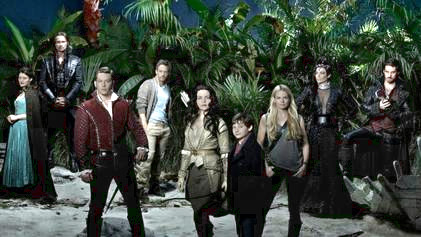 When we look at the number of characters in Once Upon A Time, though... First of all, out of their core the only consistent members since the pilot are Regina, Emma, Henry, Snow White, Rumplestiltskin, and (more or less) Prince Charming, and since the pilot they have added pretty much three or four characters per episode all the way through season 1, which about half of those characters fell out of the plot in Season 2 to make room for three or for characters per every other episode in season 2, which got so crowded that they had to split the characters up into two locations for Season 3 and still insisted on introducing new characters as both protagonists and villains... seriously, how big is Storybrooke, really, that it could contain at any time characters from not one but three alternate worlds? And whatever happened to those characters we found so enjoyable in Season 1? Did they die? Certainly they couldn't leave Storybrooke, as the show is so adamant on showing us every time one of the core group tries... so where are they? And the trouble with such a number is that one is never quite sure whether a new character is going to actually be a protagonist siding with the heroes or a new villain to complicate things, or vice versa, in that someone who was painted as a villain in the flashbacks suddenly arrives in the present as a hero with a bone to pick with the current villain... again, still very much a mess.
When we look at the number of characters in Once Upon A Time, though... First of all, out of their core the only consistent members since the pilot are Regina, Emma, Henry, Snow White, Rumplestiltskin, and (more or less) Prince Charming, and since the pilot they have added pretty much three or four characters per episode all the way through season 1, which about half of those characters fell out of the plot in Season 2 to make room for three or for characters per every other episode in season 2, which got so crowded that they had to split the characters up into two locations for Season 3 and still insisted on introducing new characters as both protagonists and villains... seriously, how big is Storybrooke, really, that it could contain at any time characters from not one but three alternate worlds? And whatever happened to those characters we found so enjoyable in Season 1? Did they die? Certainly they couldn't leave Storybrooke, as the show is so adamant on showing us every time one of the core group tries... so where are they? And the trouble with such a number is that one is never quite sure whether a new character is going to actually be a protagonist siding with the heroes or a new villain to complicate things, or vice versa, in that someone who was painted as a villain in the flashbacks suddenly arrives in the present as a hero with a bone to pick with the current villain... again, still very much a mess.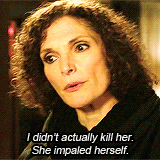 |
| Semantics a la Kelly. |
legacy of Once Upon A Time is, unfortunately, not so straightforward. Starting in Season 1, every new character is given a backstory that somehow connects them integrally with the key characters, even if that episode is pretty much their only appearance. Once again, the backstory is more used to excuse and justify than to explain and explore. Sometimes, in their eagerness to "plug in" a certain character, the writers seem to miss the fact that this new "angle" of a scene we have seen before messes with the continuity elsewhere. There are new batches of backstories with each story arc, and every time a new storyline is invented, it tends to almost replace the previous story-lines rather than contribute to them. We are kept in the dark as to why a character is a certain way until something happens and the story needs a "fallback" plot device that can only be introduced as something the character has had all along with no significance until just that moment.
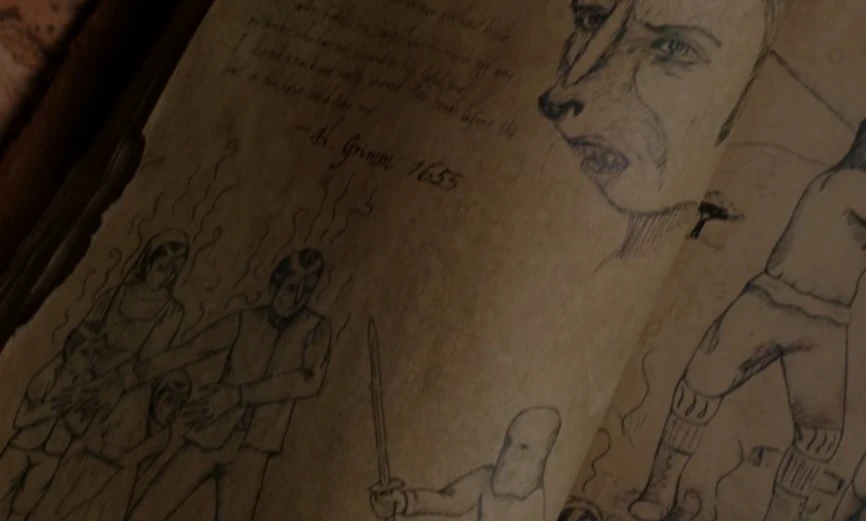 Also involved with the concepts of a show is its lore: what are those things that carry the history of this premise with them? With the lengthy tradition of the Grimm brothers, the writers of Grimm were able to fashion a thorough history with many historical items Nick inherits via an old Airstream trailer belonging to his aunt (and all the Grimms of his family.) It is full of potions and poisons and weapons for the killing and subjugation of Wesen, as well as books thoroughly documenting all the creatures and their ways. In addition to the trailer there are things such as the Coins of Zakynthos (which gave the bearers a kind of superiority complex... it is implied that Hitler had them in his possession which motivated the Holocaust) and there is also a mysterious Key that Nick receives, that the Royal Family seems to be after, and it was only revealed near the end of the last season that it has some connection to the Black Forest of Germany, like from the Dark Ages or something. Like I said, three seasons, and there is still a whole bunch of stuff from the past that has yet to be explored in the present.
Also involved with the concepts of a show is its lore: what are those things that carry the history of this premise with them? With the lengthy tradition of the Grimm brothers, the writers of Grimm were able to fashion a thorough history with many historical items Nick inherits via an old Airstream trailer belonging to his aunt (and all the Grimms of his family.) It is full of potions and poisons and weapons for the killing and subjugation of Wesen, as well as books thoroughly documenting all the creatures and their ways. In addition to the trailer there are things such as the Coins of Zakynthos (which gave the bearers a kind of superiority complex... it is implied that Hitler had them in his possession which motivated the Holocaust) and there is also a mysterious Key that Nick receives, that the Royal Family seems to be after, and it was only revealed near the end of the last season that it has some connection to the Black Forest of Germany, like from the Dark Ages or something. Like I said, three seasons, and there is still a whole bunch of stuff from the past that has yet to be explored in the present.I was trying to think of anything that could be considered "lore" in Once Upon A Time--there was the book that Henry received from Mary-Margaret (Snow White) that was a nice central feature for about one, maybe two seasons... but after that whole story arc ended, there really wasn't anything else of lasting significance. Oh sure, there are little prop-type nods to the Disney movies, tiny icons at which the viewers can point and giggle softly to themselves... But beyond that, there's really no kind of "historical objects" that Once Upon A Time can give its characters to explore or explain. (And I think there is a reason for that, which I will expound upon later.)
So along with the legacy and the lore of a show's concept, there is also its legends to be considered: what are the references to the real-world tales on which these fantastic adventures are based? How much are they drawing on the source? In the case of Grimm, the answer could be "quite a lot." Every episode begins with a quote from an actual folk tale (though after the first little while, not all of them are actual Grimm tales) and the show does a great job of sticking to its premise that these "fairy tales" were actually based on real-life encounters with Wesen and written by the Brothers Grimm as a sort of caution to kind of introduce the idea to an otherwise clueless public. Therefore, the creatures behave and appear in direct reference to the way they are portrayed in the original tales.
 Once Upon A Time, on the other hand, makes no pretense of originality at all, and instead goes straight for the Disney version of every fairy tale, right down to costume design and prop choice. Moreover, right from the very start Once has set a trend of not just ripping off Disney, but ripping up the tales we know and love, twisting them into some dark, warped, "Real Housewives of Disney" tale that suits their own purposes, but really has very little to do with the traditional tales at all. (Hence their lack of hesitation to incorporate Disney's latest faux pas, Frozen into the realm of Storybrooke, instead of going for the original tale that Disney made a mess of, The Snow Queen; talk about "nothing like the original!") So rather than being "Fairy tales meet real life" it's more like "Live-Action Disney!" Wait... I thought that's why we had theme parks...
Once Upon A Time, on the other hand, makes no pretense of originality at all, and instead goes straight for the Disney version of every fairy tale, right down to costume design and prop choice. Moreover, right from the very start Once has set a trend of not just ripping off Disney, but ripping up the tales we know and love, twisting them into some dark, warped, "Real Housewives of Disney" tale that suits their own purposes, but really has very little to do with the traditional tales at all. (Hence their lack of hesitation to incorporate Disney's latest faux pas, Frozen into the realm of Storybrooke, instead of going for the original tale that Disney made a mess of, The Snow Queen; talk about "nothing like the original!") So rather than being "Fairy tales meet real life" it's more like "Live-Action Disney!" Wait... I thought that's why we had theme parks...Going beyond just characters and concepts, there is also the aspect of continuity that is very important in a show--and of first importance in continuity is the timeline. Can one trace the show between two fixed points in time, or does it go all "wibbly-wobbly-timey-wimey" on us? Grimm does a good job with the story development as far as present-day plot arcs. New concepts are introduced because of problems characters face in reaching goals they have already set for themselves. Each time one of these new concepts has to do with something in the past, the flashbacks are orchestrated in such a way that they fill a gap (without reinventing the character) and enhance the urgency of the present situation. (i.e., we don't see any kind of flashback into Nick's past--such as when he went to live with his aunt while his parents went on the trip that killed them--until season 3, when the events of that day start catching up with Kelly)
The timeline of Once Upon A Time, on the other hand, constantly twists and turns on itself, particularly if the writers want to introduce a new "world" or theme to the show--to such an extent that if you check out the above link at the beginning of this paragraph, you will see that though someone has painstakingly gone through the trouble of putting everything on one continuum, the episode numbers skip back and forth quite frequently.
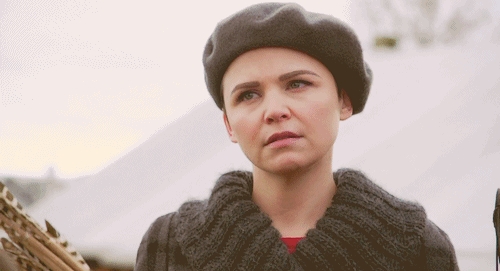 I know the show managed to confuse me many times. It just felt like every time they wanted to introduce something new, they would shoe-horn in a new plot point in a comparatively short space of time, in a crass attempt at "retcon" (retro-continuity, or going back and supplying new information you didn't even know was missing) that only serves to excuse and justify what I call a "Plot Device of Total Convenience" ("Oh darn, you need a magic thingy to defeat the dragon--oh look! I had a magic thingy in my pocket the whole time and I never noticed!" that kind of device) instead of the way it ought to be used, as an explanation of something already established and observed.
I know the show managed to confuse me many times. It just felt like every time they wanted to introduce something new, they would shoe-horn in a new plot point in a comparatively short space of time, in a crass attempt at "retcon" (retro-continuity, or going back and supplying new information you didn't even know was missing) that only serves to excuse and justify what I call a "Plot Device of Total Convenience" ("Oh darn, you need a magic thingy to defeat the dragon--oh look! I had a magic thingy in my pocket the whole time and I never noticed!" that kind of device) instead of the way it ought to be used, as an explanation of something already established and observed.  In addition to the present-day timeline of a show, there is also the issue of whether or not the history has been suitably regarded. On Grimm, the key and the mystery that surrounds it gives a sense that the timeline goes further back than the show could possibly ever reach--until such a time that it becomes the main story arc (which would be exciting, you have to admit!) but till then, we can be satisfied with the forward motion of the show. Because of the real-world ties, too--the fact that it's Portland and not some fictionalized township, and the way they almost use Wesen natures as personality types, calling out many world leaders as Wesen--this lends a rich fullness akin to real-life history as more is revealed over the course of the show.
In addition to the present-day timeline of a show, there is also the issue of whether or not the history has been suitably regarded. On Grimm, the key and the mystery that surrounds it gives a sense that the timeline goes further back than the show could possibly ever reach--until such a time that it becomes the main story arc (which would be exciting, you have to admit!) but till then, we can be satisfied with the forward motion of the show. Because of the real-world ties, too--the fact that it's Portland and not some fictionalized township, and the way they almost use Wesen natures as personality types, calling out many world leaders as Wesen--this lends a rich fullness akin to real-life history as more is revealed over the course of the show. Then, too, the aspect of history carries into the future. The future of Grimm holds promise both fresh--with the recent addition of Trubel, the first Grimm we've seen not directly related to Nick--and old, since, as I have repeatedly stated, the Key still has yet to feature in more than a few episodes per season. The villain is still as potent as ever, and though her methods have changed so little that I'm beginning to wonder at our heroes' competency against her--and really, I give her three episodes (five, tops!) in this new season or so help me I am driving down to Portland and killing her myself--it doesn't feel like the show heaps on the drama and the angst, since no matter what happens to one of them, the characters have all banded together so solidly that they will assuredly have an answer to this fresh new problem that just came on the end of Season 3. (Right, guys???) Each new story arc that has been introduced in the story doesn't necessarily begin right at the beginning of a season, and it builds on something that was introduced but not yet pursued in the previous arc.
Then, too, the aspect of history carries into the future. The future of Grimm holds promise both fresh--with the recent addition of Trubel, the first Grimm we've seen not directly related to Nick--and old, since, as I have repeatedly stated, the Key still has yet to feature in more than a few episodes per season. The villain is still as potent as ever, and though her methods have changed so little that I'm beginning to wonder at our heroes' competency against her--and really, I give her three episodes (five, tops!) in this new season or so help me I am driving down to Portland and killing her myself--it doesn't feel like the show heaps on the drama and the angst, since no matter what happens to one of them, the characters have all banded together so solidly that they will assuredly have an answer to this fresh new problem that just came on the end of Season 3. (Right, guys???) Each new story arc that has been introduced in the story doesn't necessarily begin right at the beginning of a season, and it builds on something that was introduced but not yet pursued in the previous arc.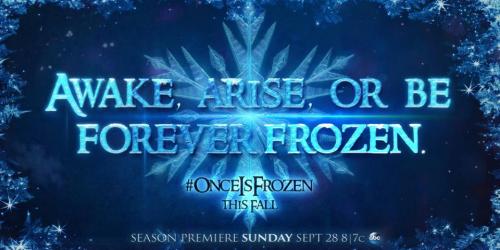 |
| Happiness has been destroyed. Magic has come to Storybrooke. We believed and Peter Pan ruined our childhood. NOW what?? |
The final area in which shows must be careful is that of their canon, or the parameters in which the characters and the plot lines function. The first part of canon is establishing the rules of the show itself. For example, the rules of Grimm are pretty straightforward and have stayed pretty much the same since the pilot: Nick is the main hero, and always worth rooting for, he has a team of good characters backing him up, and anyone who opposes him is usually siding with the villains. According to "show canon" it was perfectly normal and logical for Grimms to be going around killing and subjugating Wesen arbitrarily, but Nick has changed that (because of Marie) by making the distinction between good Wesen whom he is willing to work with, and the bad Wesen who need to face justice because they are killers and lawbreakers.
Once Upon A Time seems to have only one "rule" in its canon: everyone needs to be equally miserable. Beyond that, anything goes: there is no rhyme or reason to their storytelling, the arc is constructed, deconstructed, and reconstructed with every season. (or in the case of Season 3, half-season, because we went from Neverland to Oz in ten episodes flat!) They start out with the traditional, "Evil loses"... but then again, it just wouldn't be "fair" if good wins all the time, so ever since Emma gained the great big victory at the end of the first season and "saved" everyone from the curse, there have been no lasting victories for any of the heroes. Emma's victory brought magic into the "real" world (I thought the whole point of having them all in the real world was so they couldn't have magic???) and reconnected with her son in the second season, but that only made things worse because then Regina gets all jealous and pretends to reform and goes from the main baddie to all mushy just to win him back. This even goes far enough to allow Emma and Regina to reconcile in the third season... but then again, once Regina gets the upper hand she goes back to being her bad self and gets Emma to come along too, teaching her the "dark side" magic and whatnot as "the only way" to be able to defeat Cora and Zelena and Peter Pan. And don't get me started on "The Charming Show"!
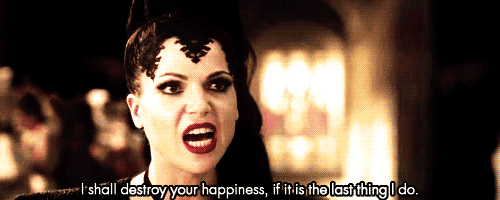 |
| SURPRISE! This has been their goal all along! |
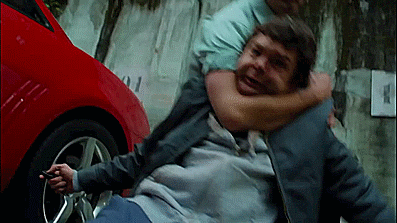 |
| A snake-like Wesen prefers to strangle its victims |
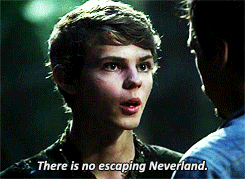 |
| Geez... kill my childhood, why don'tcha! |
The last part to be careful of when crafting a show's canon would be the ramifications, some good old-fashioned "cause-and-effect" ground rules that ought to stay consistent throughout. On Grimm we see that good choices (like being honest and faithful to your significant other!) have good outcomes, even if sometimes the only good outcome is the peace it brings to the good character just before they die. Furthermore, bad choices always have bad consequences, whether it's the good characters making bad choices (even "harmless ones" like making out with a very seductive little witch or fairy!) or the bad characters making "good-ish" choices, but with bad motives, so it doesn't last and ends up doing more harm than good.
 |
| Oh whatever... What are we teaching children with stories now? Evil is okay if it's for a "good cause" and besides "evil" is such a strong word... more like "dark choice" right? |
-----------------------------------------
In short, I think Once could have done a lot better with all the wealth of the entire scope of fairy-land at their disposal, and I feel like Grimm has done a great job (if a gruesome one!) of keeping things simple and straightforward and giving viewers a show worth watching, a relationship worth rooting for, and characters who warrant our hearty support! Yes, there is quite a bit more blood, but trust me, the writing and the characters are so great that even someone as squeamish as me can just look away at the "nasty bits" and still be a huge fan of the show!
What do you think? Do you agree with the observations I've made? Is there something you would like to add? Please feel free to weigh in on the comments!
What do you think? Do you agree with the observations I've made? Is there something you would like to add? Please feel free to weigh in on the comments!

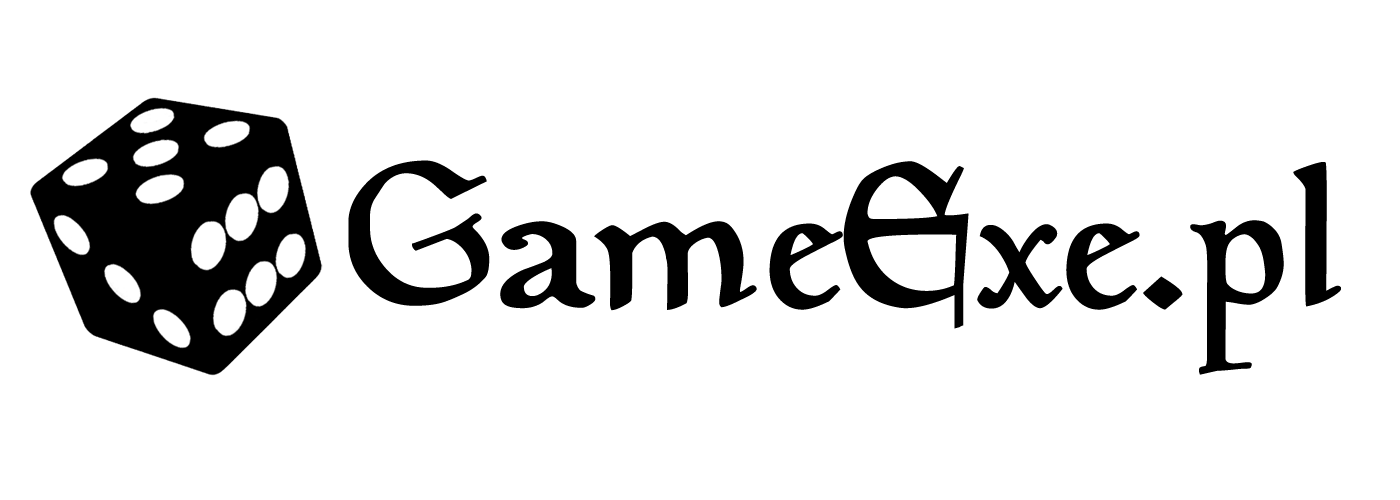

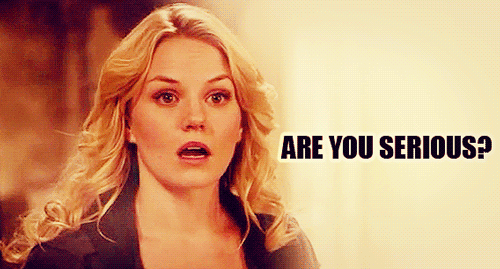

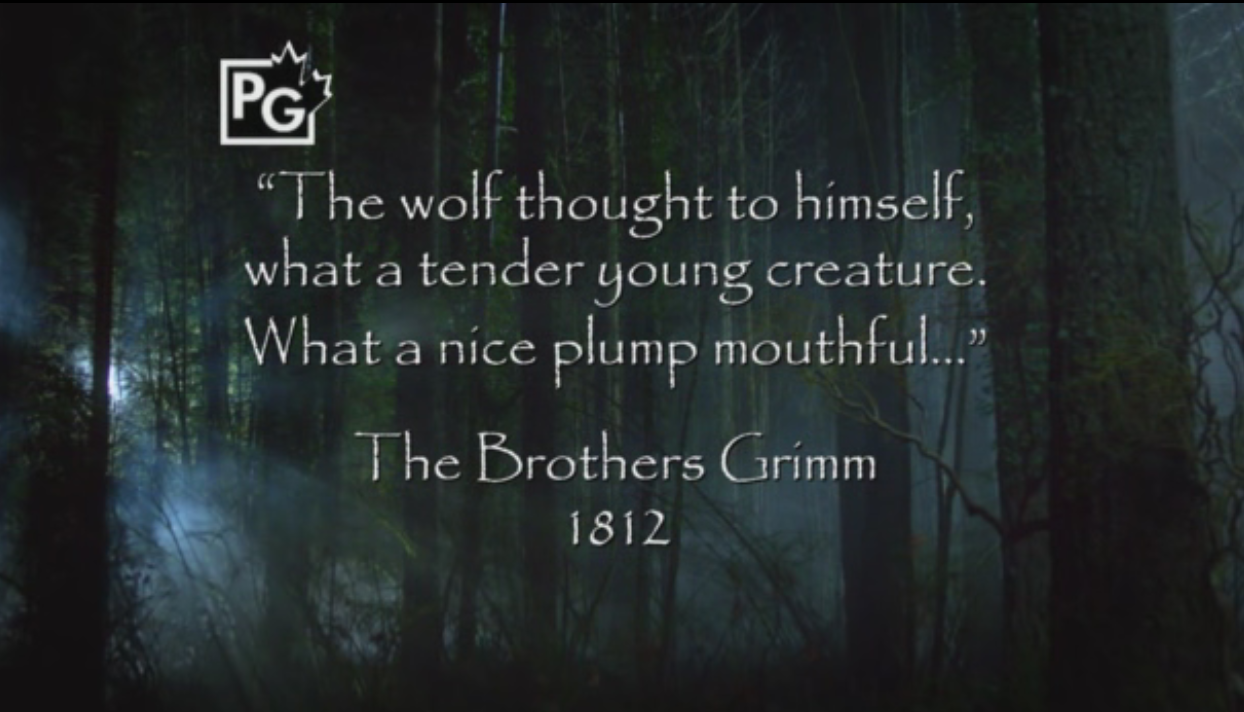




i agree
ReplyDelete